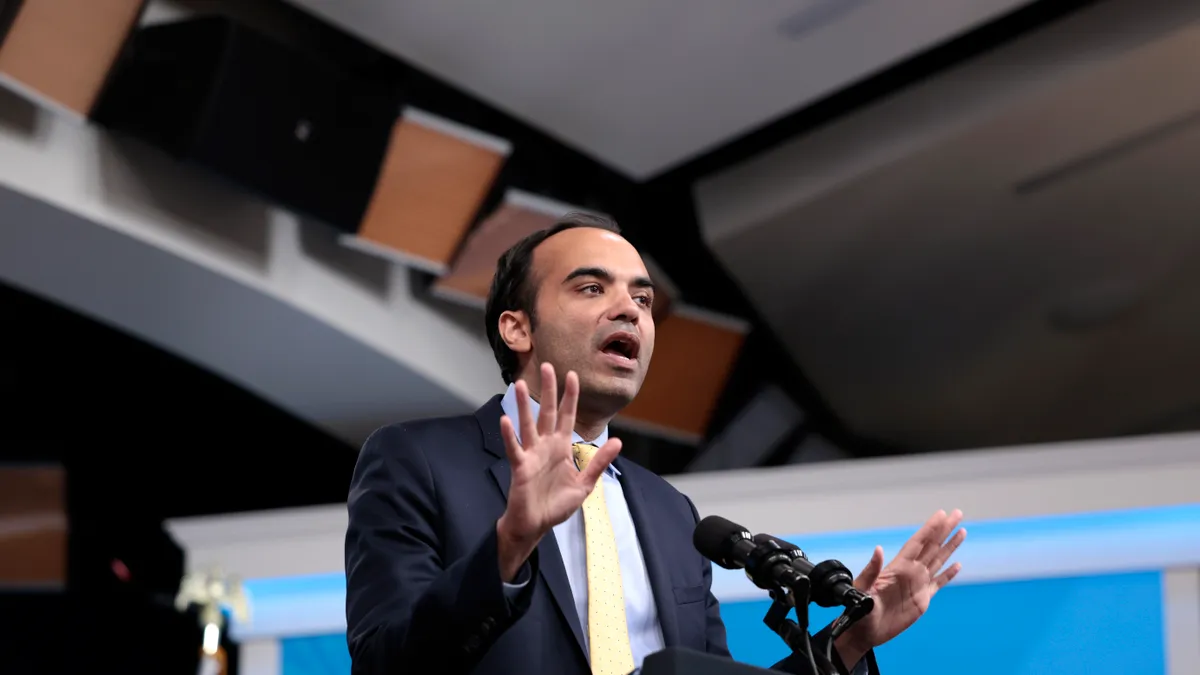Citing concerns of “financial censorship,” Consumer Financial Protection Bureau Director Rohit Chopra said last week the agency is weighing regulatory steps to better protect consumers in the payments market.
Chopra’s warning came during a payments-focused event Friday at The Brookings Institution, a Washington, D.C.-based think tank. Toward the end of his remarks, Chopra laid out a number of steps the CFPB seeks to take to protect U.S. consumers.
Those include getting more information from big tech firms about personal data use and private currency issuance; examining non-banks that offer consumer payment platforms; and publishing a proposed rule about personal financial data rights, Chopra said during the event, titled “Making America’s payment system work for a digital century.” That proposed rule will be published later this month, Chopra noted.
“It’s critically important for American consumers to have stronger protections against excessive surveillance and misuse of our data,” Chopra said.
The size of Chinese payments companies Alipay and WeChat, combined with their relationship with the Chinese government, has raised concerns about how payment companies regulate themselves, Chopra said.
“Since each of these firms controls the regulations of its payment systems, the CFPB has been studying how these firms decide which users get to play on the platform and who gets the platform and why,” Chopra said.
But the CFPB isn’t focused solely on China. Chopra also pointed to a recent move by U.S. digital payments company PayPal that caught the government agency’s attention.
“Last October PayPal updated its regulations to give itself the power to levy fines and take punitive actions against users engaged in conduct that would not otherwise violate federal or state law,” Chopra said.
PayPal went on to withdraw the regulation, Chopra said. But he noted that merchants using similar platforms report being “censored and muzzled.”
“I fear that the U.S. is lurching toward a consolidated market structure like the one that has emerged in China that blurs the lines between payments and commerce and creates the incentives for excessive surveillance and even financial censorship,” Chopra said.











